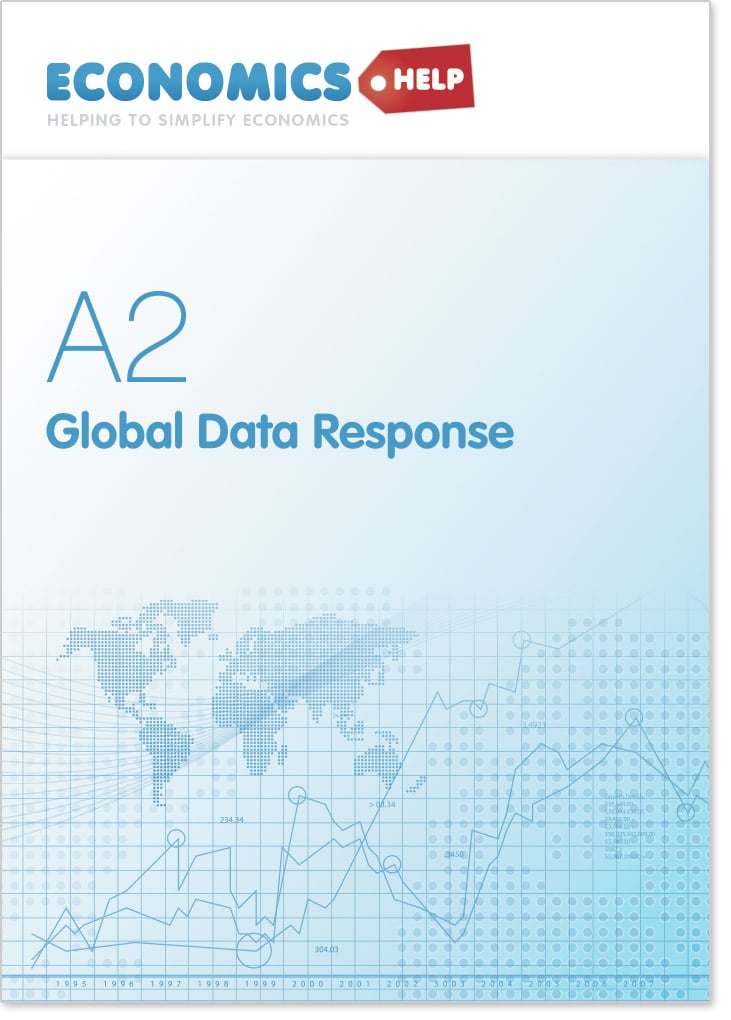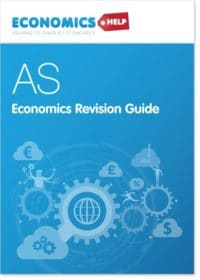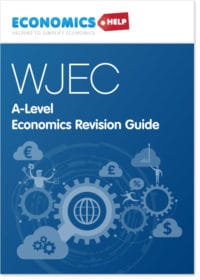Model economics data response
£4.50
This revision guide offers a selection of data response questions and model answers.
It is designed to help for:
- Edexcel Unit 4 – The Global Economy
- AQA Unit 4 – National and International Economics
- OCR – The Global Economy
If you want to distribute unlimited copies in your school, you can buy a Network license – £45.00
(e-book) sent within a couple of hours after purchase.
Description
Features of Model Data Response:
- 11 Data Response questions with recent data on UK and global economy.
- Suggested model answers.
- Including necessary evaluation.
- Tips on how to effectively use data to answer questions.
- 43 pages. 13,000 words
- View Sample Data Response
Comes as a pdf and is sent within a couple of hours after purchase.
- Read frequently asked questions here.
- Any further questions use this contact form, leaving your email address.
- Price of just £4.50 (single user license)
Questions in Data Response Pack
1. Current Account and Competitiveness
- A) Compare the main trends in Unit Labour Costs shown in Source B (5)
- B) Discuss the possible relationship between unit labour costs (source B) and the current account position (source A) (15)
- C) Discuss policies the governments of Greece and the UK could pursue to reduce a current account deficit. (25)
2. Inflation and Wage Growth
- A) Compare average wage growth and CPI inflation during the period 2005 to 2011 (5)
- B) To what extent is inflation influenced by wage growth? (12)
- C) Discuss the extent to which the Bank of England can reduce inflation whilst also targeting other macroeconomic variables such as higher economic growth and low unemployment? (25)
3. Economic Growth and Output Gap
- A) Compare the main trends in economic growth and the output gap for the UK and Germany. (5)
- B) Explain reasons for the persistence of a negative output gap in UK and Ireland. (8)
- C) Discuss various economic policies that could be used to help the Irish economy recover from recession? (20)
4. Government Borrowing
- A) Compare the trends in government borrowing and economic growth. (5)
- B) Explain why ‘austerity measures could prove self defeating’ (source D) (6)
- C) Assess whether governments should be concerned about a growth in the size of public sector debt (25)
5. Unemployment
- A) Examine the link between the degree of employment protection and the rate of unemployment in selected countries (5)
- B) Explain a possible link between labour market regulation and levels of unemployment. (5)
- C) Discuss the most effective policies for governments to reduce levels of unemployment. (25)
6. Exchange Rate
- A) Explain the main movements in the US Dollar in the period show. (4)
- B) Explain what is meant by the trade weighted index (4)
- C) Explain reasons for fall in value of dollar between 2002 and 2012 (10)
- D) Discuss whether the ‘fall in the dollar is beneficial for the current state of the US economy’. (25)
7. Competitiveness
- A) Assess two economics implications of a higher tax rate on labour (5)
- B) Explain two factors that may determine average wage rates (Source C) (6)
- C) Discuss the extent to which the government can improve international competitiveness. (25)
8. Deficits
- A) Explain what is meant by budget deficit and a current account deficit (4)
- B) Explain reasons for the deterioration in the UK Current account deficit (10)
- C) Assess whether the government should be concerned about a current account deficit. (25)
9. The Euro
- A) Using data, explain differences and similarities between the UK and rest of Eurozone economy. (5)
- B) Explain two possible reasons for the different rates of inflation between the Germany and Greece. (5)
- C) Examine why the UK Housing market could make it hard for UK to cope with Monetary Union? (6)
- D) To what extent does the data show that the UK is ready to join the Euro (25)
10. Oil Prices
- A). Explain what is meant by a Food Price Index with base year 2004. (4)
- B) Assess the implications for developing economies of rising food prices (15)
- C) Discuss the extent to which policy makers should be concerned about a rise in the price of oil (25)
11. China
- A). Using the data assess the state of the Chinese economy (5)
- B). Assess whether the US should be concerned with China keeping their currency undervalued. (15)
- C). Discuss, whether the experience of China shows that the process of globalisation helps improve living standards in developing and developed economies (30)





